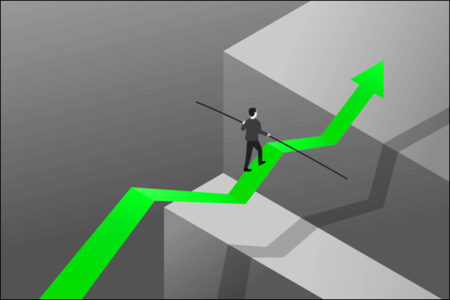
Choices are about to be made. Central banks and legislatures seem poised to decide what they want to do. For central banks, “plentiful liquidity helped governments, businesses and households survive lockdowns. Cash flows collapsed but bankruptcies barely increased. Asset markets and the real economy exited the crisis on a strong footing.”[1] But now there may be “too much debt and too much money in the system.”[2] The choice for the Federal Reserve and for the European Central Bank is to take away the “punch bowl” of combined net asset purchases of about $235 billion per month, in coordination, perhaps, over a period as short as 12 months.[3] Their actions risk dramatically affecting the values of financial assets.
For legislatures, a “potential dramatic increase in the scope of government” risks the “unintended consequences” of “chronic higher unemployment (severe among the young), lower gross domestic product and higher taxes that discourage risk-taking.”[4] The choice for the US Congress is to endorse the zero-sum economics of “scientific socialism” where “wealth is created only by exploiting the poor, all income comes from labor and the economy needs central direction because markets can’t self-correct.”[5]
Or, the other choice is to endorse the modern economy. As far back as the 18th century, economists showed that “specialization of labor was valuable, that capital was productive, and that labor and capital could work together to increase income,” meaning increasing the size of the pie. Property rights, cooperation through trade, and little or no central direction could create wealth that benefited all of society.
For the individual investor, the headline describing the decision that jurors must make in the Theranos, Inc. investment trial seems relevant. The jurors must decide whether those putting cash into the company were “savvy speculators who made an unwise, but informed bet or whether they were hoodwinked by a lying founder.”[6] The choices described above for central banks and legislatures are also dramatically either/or with little middle ground. Investors, however, can choose a middle ground while waiting for the consequences — and unintended consequences — of the decisions described above to become evident.
The middle ground, putting good companies into individually managed portfolios, should continue to work over the long term, even with the severe potential problems discussed above.
We know that you are the most valuable business development tool that we have. Your referral of a friend, colleague or family member to us is the most important way that we grow. We thank you for your support and want you to know that we are dedicated to serving your best interest.
William H. Darling, Chairman & CEO
[1] Dimitris Valatsas, “As Central Banks Taper, Investors Should Take Cover,” WSJ, 10/7/21
[2] James Mackintosh, “Something Is Awry in the Treasury Market This Summer,” WSJ, 8/16/21
[3] Ibid, Valatsas, WSJ 10/7/21
[4] WSJ, 8/11/21 Letters
[5] Paul Rubin, “The Woke Left’s Primitive Economics,” WSJ, 10/6/21
[6] Heather Somerville, “Theranos Trial Jurors to Weigh Whether Investors Were Dupes or Savvy Speculators,” WSJ, 9/28/21
